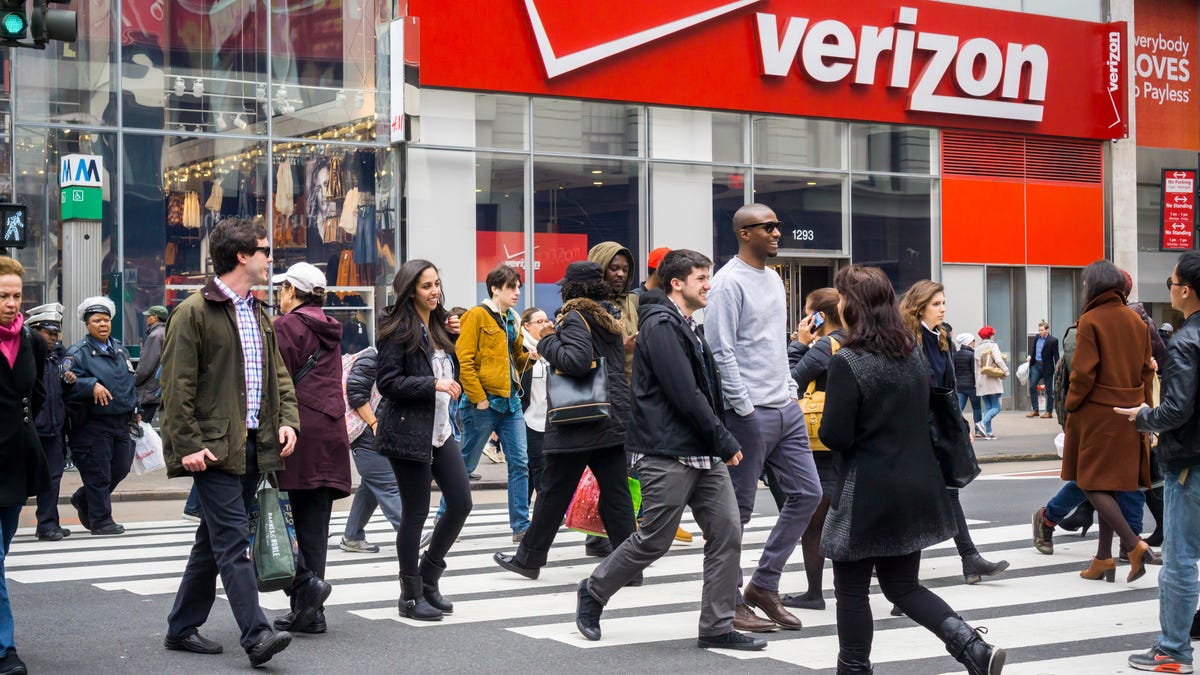Rural carriers accuse Verizon of lying about 4G coverage
The "inaccurate" coverage map could lead to rural carriers missing out on $4.5 billion in government subsidies, they say.

Verizon is accused of "grossly" overstating its 4G coverage in rural areas.
A trade group representing rural cellular carriers is accusing Verizon of "grossly" overstating its 4G LTE coverage in government filings, claiming the bad data could prevent rural carriers from obtaining subsidies aimed at bringing broadband to remote areas.
The Rural Wireless Association (RWA) alleges the coverage map Verizon submitted to the Federal Communications Commission is "a sham," and should be re-filed using accurate data, according to letter filed with the FCC on Tuesday. The group says the misinformation could prevent rural carriers from obtaining $4.5 billion in government subsidies as part of the agency's Mobility Fund, which specifically targets funding for "rural areas that lack unsubsidized 4G," according to the FCC.
In other words, Verizon's data shows the carrier offering 4G coverage in areas where it doesn't, and because the map shows that area is already covered with 4G service, rural carriers looking to deploy there won't be able to access government funds to help bring service there.
The accusation comes as policy makers and members of Congress look more closely at bridging the digital divide between rural and urban areas. The FCC estimates 39 percent of people living in rural regions do not have access to broadband, compared with just 4 percent of people in cities. The reason is simple. In sparsely populated areas, it's not economical for private industry to deploy infrastructure.
Programs like the FCC's Mobility Fund are intended to help smaller, rural service providers bridge that gap. But policy makers also want to make sure that money is going to areas that really need it, and it wants to avoid offering subsidies to carriers offering 4G service where 4G is already available.
Verizon says its coverage map complies with the FCC's mapping rules and industry best practices for modeling. While the company admits that no model is perfect, since some maps inevitably overstate coverage in some areas and understate in others, the company has met the FCC requirements.
"The FCC adopted the rules, and Verizon followed them," Richard Young, a spokesman for the Verizon said. "If RWA or one of its members disputes the model result in a particular area, it should follow the rules and file a challenge."
But the RWA argues the complaint process is too expensive for smaller carriers.
"RWA's members are in the middle of the challenge process but are expending enormous time and financial resources in their efforts due to inaccurate data submitted by Verizon," the group said. "RWA requests that the commission investigate the 4G LTE coverage claimed by Verizon and require re-filing of Verizon's data to correct its overstated coverage."
Security: Stay up-to-date on the latest in breaches, hacks, fixes and all those cybersecurity issues that keep you up at night.
CNET en Español: Get all your tech news and reviews in Spanish.

